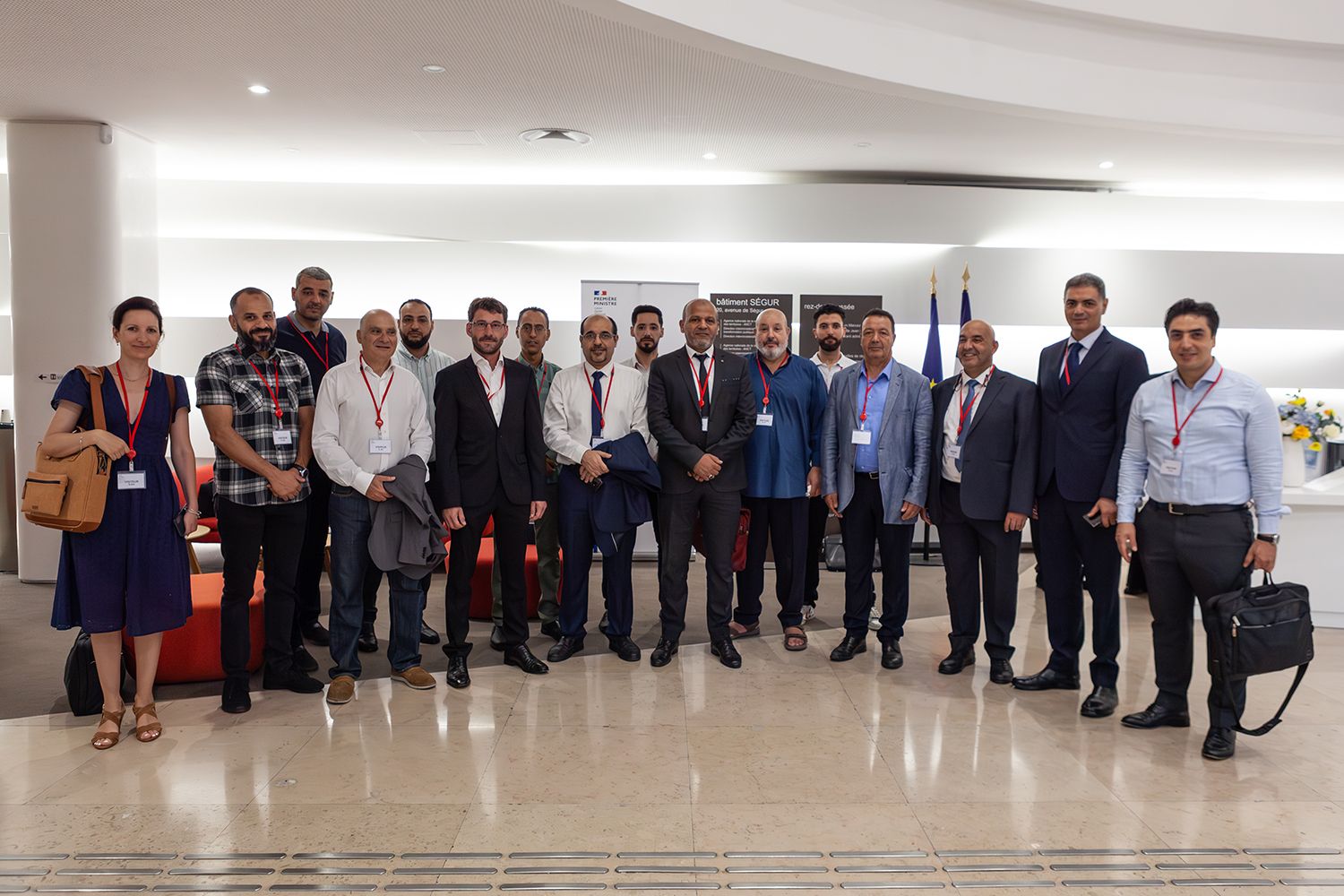News
Archive
- February 2025
- January 2025
- December 2024
- November 2024
- October 2024
- September 2024
- August 2024
- July 2024
- June 2024
- May 2024
- April 2024
- March 2024
- February 2024
- January 2024
- December 2023
- November 2023
- October 2023
- September 2023
- August 2023
- July 2023
- June 2023
- May 2023
- March 2023
- February 2023
- October 2022
- August 2022
- July 2022
- June 2022
- May 2022
- April 2022
Libyan Digital Lab Explores key French Digital Transition Players in Paris
A two-day tour was organized for the Libyan Digital Lab in Paris to capitalize on the lessons learned and best practices on digitalization from the French government and provide the Libyan Digital Lab with an overview of the different digital tools used to implement the French national digital strategy. This tour is part of the E-NABLE project, funded by the European Union and implemented by Expertise France to support the digitalization and diversification of the Libyan economy.
The Digital Lab is an initiative supervised by the General Information Authority with members from various public institutions and ministries, was established with the technical support of the E-NABLE project; it aims to keep pace with digital transformation and work with all Libyan state institutions to employ modern technologies and information systems across the public sector in Libya.
On the first day of their tour, the Libyan Digital Lab team, and Expertise France’s team, led by Mr. Julien Schmitt, Country Representative and Program director at Expertise France Libya, met with the entity in charge of developing France’s digital strategy and overseeing its implementation: “Interministerial Digital Directorate” (DINUM), to discuss their mission and their digitalization roadmap, and share tips and best practices.
DINUM is responsible for engaging in a deep digital transformation of public organizations while significantly enhancing digital skills and guaranteeing the digital sovereignty of the French State by investing in mutualized digital productivity tools for civil servants. The participants received a detailed and comprehensive presentation about the DINUM; they learned about its creation, evolution, organization, mandate, and relationship with other ministries.
Later on, the participating team visited “the Digital Public Services Incubator,” which aims to spread digital innovation through State Startups, which are teams of entrepreneurs and experts that were assigned to solve an issue affecting citizens using digital tools. These teams of 2 to 4 people will be given six months to prove that their digital product or public service can improve the situation and solve the issue. This Digital Public Services Incubator approach yields greatly improved services at a fraction of the cost and fosters interest and support from civil society.
The participants also visited the Datalab, a space dedicated to the experimentation and qualification of State data allowing the exploration and processing of data sets while testing different algorithms.
To conclude the day, the participants met with “IN Groupe,” a key player in identity and trust solutions for global exchanges. They partner with the French Government, offering identity solutions and secure digital services integrating electronic, optical, and biometric technologies.
Participants from the Digital Lab’s team, particularly from the General Information Authority, the National Information Security and Safety Authority, the Libyan Post Telecommunications & Information Technology Company, and the Ministry of Information and Communication, discussed how employing such innovative solutions and tools will enable the Libyan government and public institutions to provide reliable and secure identity solutions while preventing fraud and facilitating authentication capabilities for the digitalization of the services offered to Libyan citizens.
On the second day of the tour, the participants had a meeting with the ministerial delegate for digital health at the French Ministry of Health to showcase their digital services roadmap with the presentation of a few digital tools they’re using.
They also had the opportunity to meet a practical example of a Digital Lab in action, the National Commission for Information Technology and Civil Liberties (CNIL), in which the participants met with a number of its members and discussed their role in assisting private and public actors to achieve personal data protection compliance.

